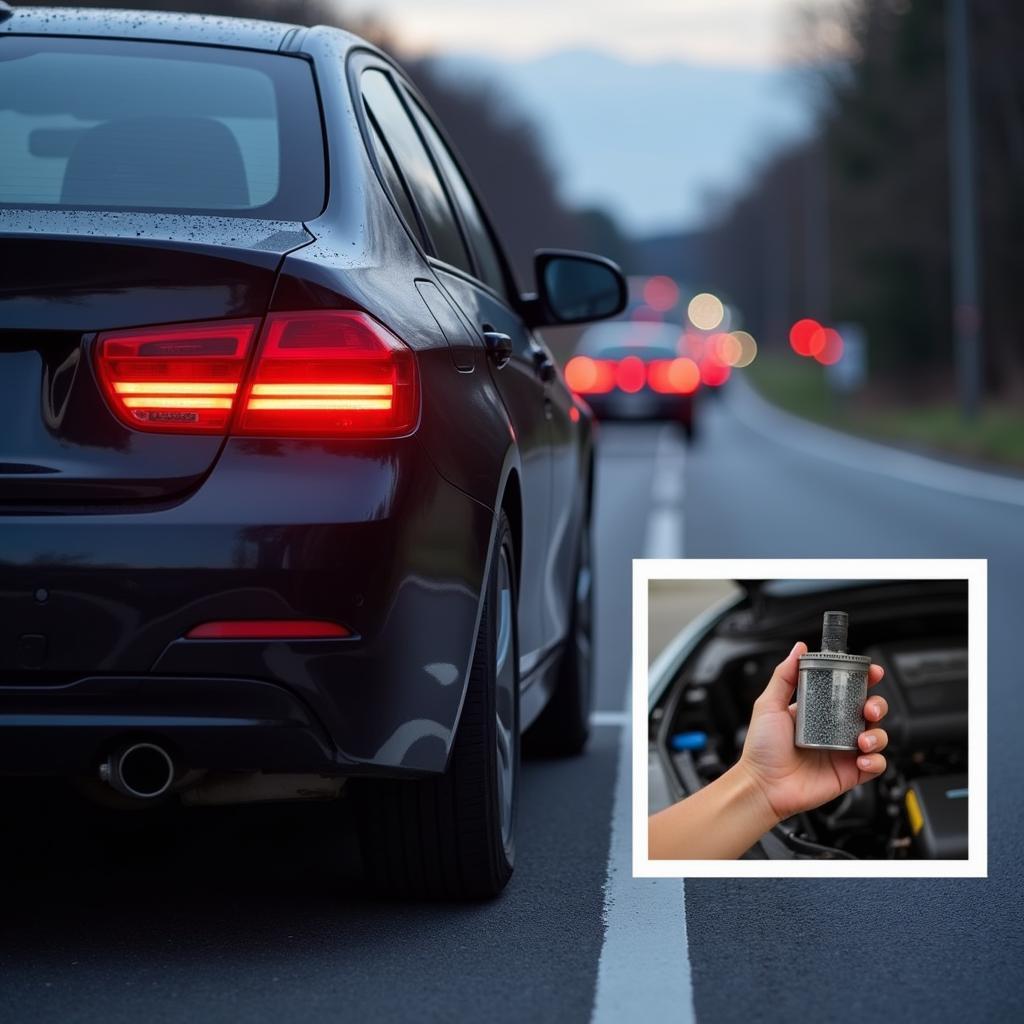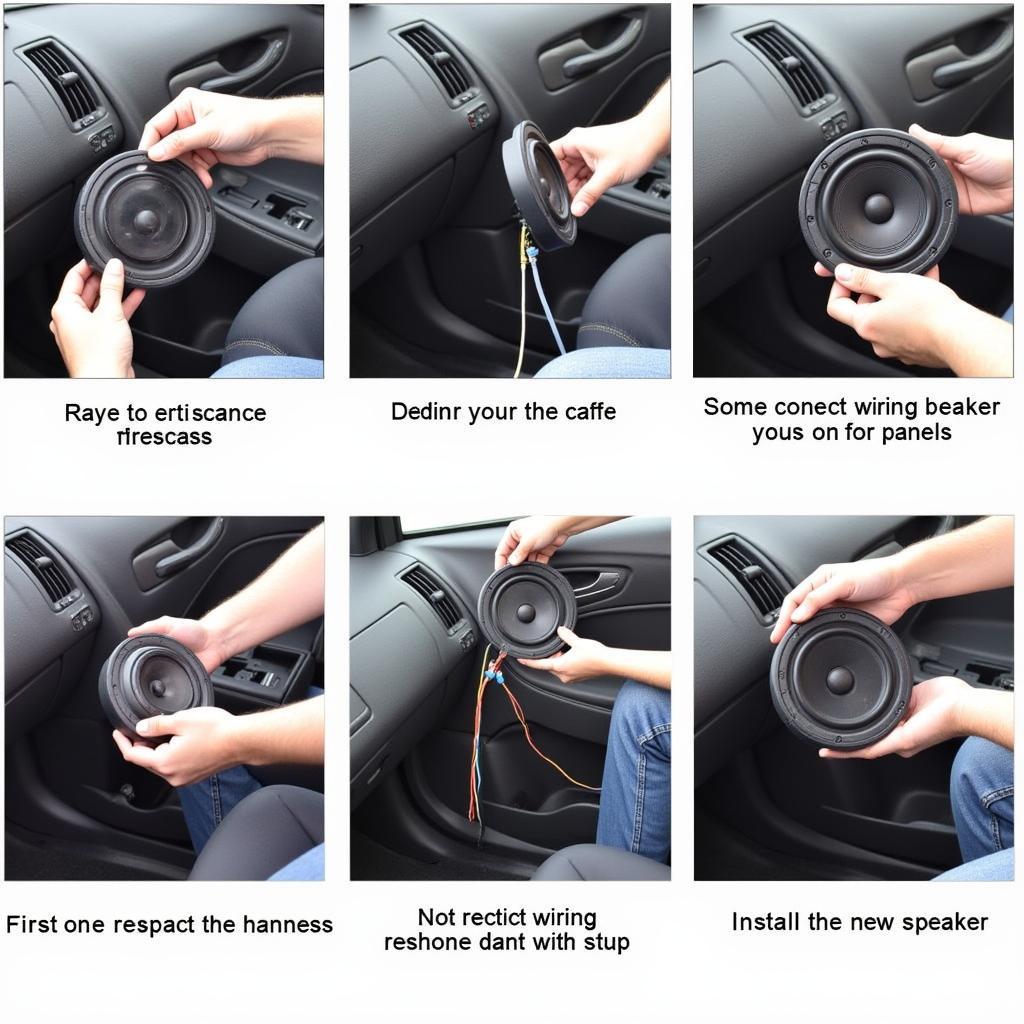The most common car problems in 2018 often stemmed from wear and tear, neglected maintenance, and sometimes, just plain bad luck. This guide will delve into those frequently encountered issues, offering practical advice for car owners, repair shops, and technicians alike. From diagnosing the problem to implementing effective solutions, we’ll cover everything you need to know to keep your vehicle running smoothly.
Understanding the Most Prevalent Car Issues of 2018
Many drivers experienced similar car troubles in 2018. Recognizing these common issues can save you time, money, and frustration. Understanding the underlying causes can also help prevent future occurrences. Let’s explore some of the most frequently reported problems.
Battery Issues: A Constant Drain
Battery problems consistently rank high on the list of car troubles. In 2018, this was no exception. From dead batteries to slow starts, these issues can leave you stranded. Corrosion, extreme temperatures, and old age are common culprits.
- Check for corrosion: Regularly inspect battery terminals for corrosion buildup. Clean them with a wire brush and baking soda solution.
- Test battery voltage: Use a multimeter to check the battery’s voltage. A reading below 12.6 volts indicates a potential problem.
- Consider battery age: Batteries typically last 3-5 years. If yours is nearing the end of its lifespan, consider replacing it proactively.
What are some quick fixes for a dead car battery? Jump-starting with another vehicle or using a portable jump starter are effective temporary solutions. However, it’s crucial to address the underlying cause to prevent recurring issues.
Brake Problems: Stopping Power Concerns
Brake issues are critical safety concerns. In 2018, many drivers reported problems ranging from squeaking brakes to decreased stopping power. Worn brake pads, rotors, and brake fluid leaks are common causes.
- Listen for unusual noises: Squeaking or grinding sounds often indicate worn brake pads.
- Feel for vibrations: A pulsating brake pedal can signify warped rotors.
- Check brake fluid levels: Low brake fluid can indicate a leak, which requires immediate attention.
Why are brake problems so dangerous? Faulty brakes can significantly reduce your ability to stop quickly and safely, increasing the risk of accidents. Regular brake inspections are essential for maintaining safe driving conditions.
Engine Troubles: The Heart of the Matter
Engine problems can range from minor annoyances to major repairs. In 2018, common engine-related issues included misfires, rough idling, and decreased fuel efficiency. Spark plugs, fuel injectors, and oxygen sensors are often implicated.
- Check the check engine light: A illuminated check engine light can indicate various engine problems. Use an OBD-II scanner to retrieve the trouble codes.
- Monitor fuel efficiency: A sudden drop in fuel economy can signal an engine problem.
- Pay attention to unusual sounds: Knocking or ticking sounds from the engine should be investigated promptly.
“Regular maintenance, such as oil changes and tune-ups, can significantly reduce the risk of major engine problems,” says automotive engineer, Robert Hernandez, from Advanced Automotive Solutions.
Addressing the Most Common Car Problems of 2018
While these represent just a few of the most common car problems in 2018, they offer a glimpse into the challenges faced by many car owners. Addressing these issues proactively can save you money and ensure your vehicle’s reliability.
“Ignoring minor car problems can often lead to more significant and costly repairs down the road,” advises Maria Sanchez, lead mechanic at Precision Auto Repair.
Tire Troubles: Maintaining Traction and Control
Tire problems, such as punctures, uneven wear, and low tire pressure, can impact handling and safety. Regularly checking tire pressure and tread depth is crucial for optimal performance and safety.
- Check tire pressure monthly: Use a tire pressure gauge to ensure your tires are inflated to the recommended pressure listed in your owner’s manual.
- Inspect tire tread depth: Use a penny to check tire tread depth. If you can see Lincoln’s head, your tires need to be replaced.
- Rotate tires regularly: Rotating your tires every 5,000-8,000 miles helps ensure even wear.
Conclusion: Staying Ahead of Car Troubles
Addressing the most common car problems in 2018 requires vigilance and proactive maintenance. By understanding the typical issues and implementing preventative measures, you can keep your vehicle running smoothly and avoid costly repairs. Remember, regular checkups and timely attention to warning signs are key to a trouble-free driving experience. For expert advice and assistance with your car maintenance and repair needs, connect with us at AutoTipPro. Call us at +1 (641) 206-8880 or visit our office at 500 N St Mary’s St, San Antonio, TX 78205, United States.
FAQ
- What is the most common car problem? Battery issues, brake problems, and engine troubles are among the most frequently reported car problems.
- How can I prevent car problems? Regular maintenance, such as oil changes, tune-ups, and brake inspections, can significantly reduce the risk of car problems.
- What should I do if my check engine light comes on? Use an OBD-II scanner to retrieve the trouble codes and consult a qualified mechanic.
- How often should I check my tire pressure? Check your tire pressure monthly and before long trips.
- How can I tell if my brake pads are worn? Listen for squeaking or grinding sounds and feel for vibrations in the brake pedal.
- What are signs of a failing battery? Slow starts, dim headlights, and a clicking sound when turning the key are signs of a failing battery.
- Why is regular car maintenance important? Regular maintenance can prevent costly repairs, improve fuel efficiency, and enhance safety.






Leave a Reply